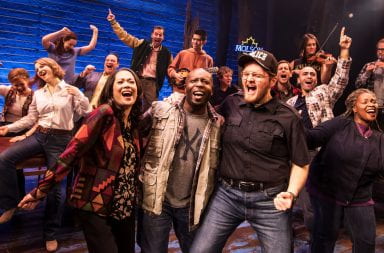Jay Z’s “The Blueprint” was released on Sept. 11, 2001. Of course, it was to be overshadowed, hugely and catastrophically in the aftermath of that day. But as time passed, there was a far-reaching desire for a return to normalcy. And if people could return to being entertained, all the better that it came from a New Yorker — for once the Yankees were a symbol for the nation’s resiliency instead of its scorn. And Brooklyn’s most legendary resident (after Biggie) had just released a classic album.
The best thing about “The Blueprint” is that it is good enough that it won’t be forever linked with 9/11 — enough that the majority of listeners today don’t even know of the connection. It has forged its own identity as a piece of great rap, and art.
Now, the album seems like a cultural touchstone. It not only established Jay Z as an iconic figure, solidifying the persona he introduced on “Reasonable Doubt,” but also presented Kanye West as a producer, brilliantly flipping samples of the Doors and Jackson 5 for some of the album’s classic tracks. “Izzo (H.O.V.A.)” maybe best encapsulates Jay Z’s career, and “Takeover” is a point-by-point dissertation-like diss track.
Jay Z had become the biggest rapper of the post-Biggie and Tupac years by 2001, except for maybe Eminem, who by September was causing peak parental hysteria. Eminem also has the only guest verse on the album, on the technically stunning “Renegade.” Jay has been chided a lot for the over-performance of Eminem on this track — which is ignoring the fact that it is still a great song on a Jay Z album. It’s also ignoring that it was originally an Eminem song that Jay jumped on.
“I thought I told you characters I’m not a rapper,” Jay raps, and that’s been one of the themes of his career. He’s said in interviews that he only planned to release one album, then use that money for further business ventures. By the time of “The Blueprint,” he was already a businessman, creating Roc-a-wear and Roc-a-fella Records, but he wasn’t yet a billionaire and American royalty.
“The Blueprint” is the album that pushed him farther in that direction. He reached icon status and was able to use that to take himself to whatever comes next in the hierarchy of American celebrity. He could drop a retirement album and not go anywhere. Jay might not be riding the Blueprint wave anymore, but it’s a big part of the reason why he is where he is.
“Ali r u ok?” M.I.A.
Controversy follows M.I.A. around so constantly that the release of a new album doesn’t feel like much of an event anymore. Maybe that’s why she tried to drum up attention by saying “AIM” would be her last album.
But it’s not really her fault that less attention is being paid to the work she does for a living. Politics were as much a part of her public persona as her music from the beginning, and they often seemed to infuriate people as much as the music intrigued them.
Which is probably what she wants — to draw attention to the issues that matter to her through the music. The problem is that most people can sing along to the chorus of “Paper Planes” while ignoring the political message.
Her new album is less bombastic than it’s predecessors — it specializes in hypnotizing rhythms and vocals like the ones found on this track. It’s trance-inducing, more vaguely political than other songs on the album, and is M.I.A. at her best at this later point in her career.


